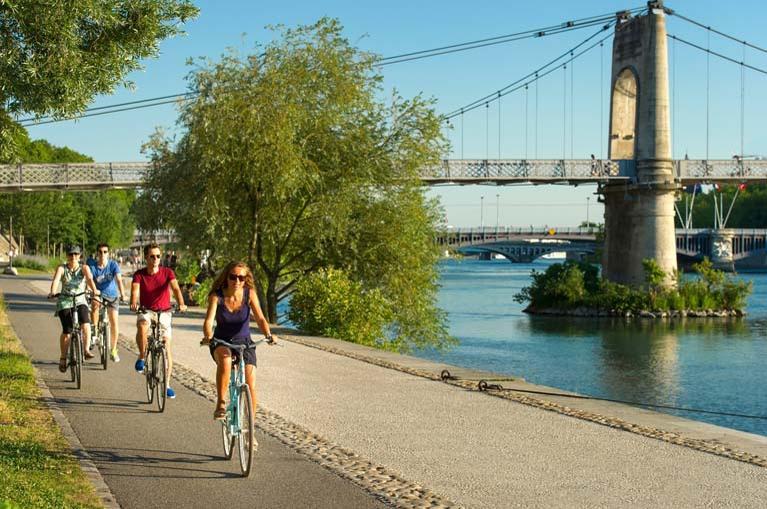A 100 million euro plan for 400 kilometers of extra-urban cycle paths: here is the maxi project dedicated to bicycles that Lyon has in store.
The objective of the plan is 2030, so it will still take a while to see the project finished, but the ambition of this administration, governed by Bruno Bernard, is very high, especially as it wants to make a clean break from the past.
For Bernard, implementing this ambitious metropolitan Biciplan means making a contribution, which will hopefully be an example for many, in response to the climate emergency.
This is a cycle path plan that aims to push citizens to permanently abandon, or reduce the use of, cars even on extra-urban journeys.
The plan envisages the implementation of actions that contribute to creating and improving 250 km of cycle paths by 2026 and, by the end of the mandate, 12 "supporting" cycle lines should be created, therefore essential for creating a uniform network of routes.
These main lines will cross 4 municipalities in the metropolitan area, allowing 3 out of 4 citizens to live within 10 minutes of a strategic cycle route.
At the end of the project, they will have to be implemented 13 lines, for a total of 396 km of routes.
Bruno Bernard reported that: “Almost all the municipalities on the outskirts will be connected to Lyon, with the double advantage of connecting even the smallest municipalities to each other, improving the territory and giving a more peaceful, comfortable and reassuring face to the landscape”.
The lines will be separated by road infrastructure from pedestrian areas and will be wide enough to allow the transit of multiple bikes in complete safety and the spread of cargo bikes.
“Moving around the city by bicycle is still considered too dangerous by many of our fellow citizens. With an infrastructure entirely dedicated to cycling we are responding to these criticisms, so that the bicycle becomes a means of transport accessible to all", he claims Fabien Bagnon, vice-president and delegate for roads and active mobility.
The routes will also be equipped with clear signage, lit at night and will have some useful services such as inflation stations or water fountains.
The entire cycle network will then be connected to the stations of many cities in the metropolis.
Construction of the first line began in October 2021 and will connect Vaulx-en-Velin to Saint-Fons covering a distance of 20.5 km.
It will be completed in spring 2022 and will serve the Doua campus in Villerbanne.
This intervention will use existing routes, which will be expanded and renewed.

